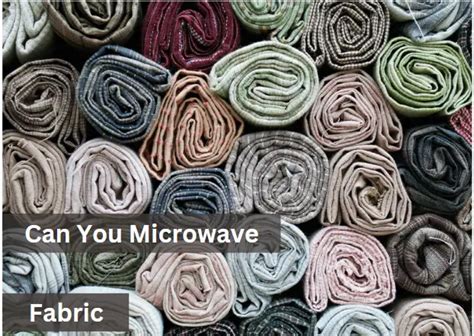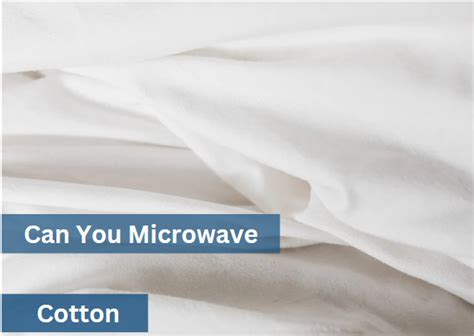cotton metallic fabric in the microwave 1. Cotton. Cotton is one of the most common and versatile fabrics, and it’s also microwave safe. It is a natural fiber that can absorb heat well, making it a good choice for use in heating pads, blankets, and other items. However, . When describing sheen of fabrics, here are the terms you should know: Matte Finish: Felt. Matte: “Flat” or “Matte” finish in paint. Non reflective surface. This finish is best at hiding any imperfections. The French root is mat, “dead, dull surface,” from the Old French meaning, “dull or dejected.” Do not let this scare you away .
0 · microwaveable fabric
1 · microwavable fabric safe to use
2 · microwavable cotton fabric
3 · can you microwave nylon fabric
4 · can you microwave felt fabric
5 · can you microwave fabric
6 · can you microwave cotton
7 · are microwaves safe fabric
Plastic junction boxes, also known as PVC boxes, are another popular choice for electrical installations. These boxes are made of non-conductive materials, such as PVC (polyvinyl chloride), which makes them lightweight and easy to work with.
1. Cotton. Cotton is one of the most common and versatile fabrics, and it’s also microwave safe. It is a natural fiber that can absorb heat well, making it a good choice for use in heating pads, blankets, and other items. However, . Some cotton fabrics may have metallic or synthetic components that can cause sparks or fires in the microwave. If the fabric is labeled as microwave-safe, proceed with .
What Makes a Fabric Microwave Safe? Common Fabrics and Their Microwave Safety. 1. Cotton Fabrics; 2. Polyester and Synthetic Blends; 3. Linen; 4. Wool; 5. Rayon and Bamboo Fabrics; . When using cotton fabric in the microwave, it’s best to choose 100% cotton because blends may contain synthetic fibers that could melt or catch fire. If you’re using cotton .
You can put some materials in a microwave, but proceed with caution! Only use heat-resistant, microwave-safe fabrics like cotton or linen, and follow a reliable guide to avoid accidents and achieve the desired results.Yes, you can microwave cloth, but there are important safety considerations you need to keep in mind. Not all types of fabric are suitable for microwaving. Generally, cotton and some synthetic . Natural fabrics like cotton may be microwaved, but metal or synthetic fibers should not. Avoid felt and wool as they can burn; plastics can melt too! Be sure to inspect 100% cotton thoroughly since additives in blended .It is possible to put the fabric in your microwave, provided that you use the right materials and how those materials absorb heat. Microwavable heating pads are the more common materials to .
Cotton is highly flammable and can easily catch fire when exposed to the high heat of a microwave. Additionally, using cotton in the microwave can lead to food contamination, as .
Yes, you can microwave fabric. Most natural fabrics can be microwaved safely which is why cotton towels are used in many massage therapy spas. But if there is any metal on those fabrics or they are made from synthetic fibers then avoid using the microwave to .
1. Cotton. Cotton is one of the most common and versatile fabrics, and it’s also microwave safe. It is a natural fiber that can absorb heat well, making it a good choice for use in heating pads, blankets, and other items. However, be sure to use 100% cotton fabric, as synthetic blends may melt or burn in the microwave. Some cotton fabrics may have metallic or synthetic components that can cause sparks or fires in the microwave. If the fabric is labeled as microwave-safe, proceed with caution. To prevent damage or accidents, it is crucial to test the fabric before microwaving it.What Makes a Fabric Microwave Safe? Common Fabrics and Their Microwave Safety. 1. Cotton Fabrics; 2. Polyester and Synthetic Blends; 3. Linen; 4. Wool; 5. Rayon and Bamboo Fabrics; How to Test Fabric for Microwave Safety; Practical Uses of Microwave-Safe Fabrics. 1. Microwave-Safe Covers; 2. Cooking Bags; 3. Pot Holders and Mitts; Best . When using cotton fabric in the microwave, it’s best to choose 100% cotton because blends may contain synthetic fibers that could melt or catch fire. If you’re using cotton fabric to cover a bowl or plate in the microwave, make sure it’s not too thick or tightly woven.
You can put some materials in a microwave, but proceed with caution! Only use heat-resistant, microwave-safe fabrics like cotton or linen, and follow a reliable guide to avoid accidents and achieve the desired results.Yes, you can microwave cloth, but there are important safety considerations you need to keep in mind. Not all types of fabric are suitable for microwaving. Generally, cotton and some synthetic fibers can withstand microwave heat, provided they don’t have metallic threads or embellishments. Natural fabrics like cotton may be microwaved, but metal or synthetic fibers should not. Avoid felt and wool as they can burn; plastics can melt too! Be sure to inspect 100% cotton thoroughly since additives in blended materials could cause danger.It is possible to put the fabric in your microwave, provided that you use the right materials and how those materials absorb heat. Microwavable heating pads are the more common materials to use in the microwave, as well as cotton, linen, hemp, and silk.
Cotton is highly flammable and can easily catch fire when exposed to the high heat of a microwave. Additionally, using cotton in the microwave can lead to food contamination, as the fabric may contain dirt, dust, or chemicals harmful to your health. Yes, you can microwave fabric. Most natural fabrics can be microwaved safely which is why cotton towels are used in many massage therapy spas. But if there is any metal on those fabrics or they are made from synthetic fibers then avoid using the microwave to . 1. Cotton. Cotton is one of the most common and versatile fabrics, and it’s also microwave safe. It is a natural fiber that can absorb heat well, making it a good choice for use in heating pads, blankets, and other items. However, be sure to use 100% cotton fabric, as synthetic blends may melt or burn in the microwave.

Some cotton fabrics may have metallic or synthetic components that can cause sparks or fires in the microwave. If the fabric is labeled as microwave-safe, proceed with caution. To prevent damage or accidents, it is crucial to test the fabric before microwaving it.What Makes a Fabric Microwave Safe? Common Fabrics and Their Microwave Safety. 1. Cotton Fabrics; 2. Polyester and Synthetic Blends; 3. Linen; 4. Wool; 5. Rayon and Bamboo Fabrics; How to Test Fabric for Microwave Safety; Practical Uses of Microwave-Safe Fabrics. 1. Microwave-Safe Covers; 2. Cooking Bags; 3. Pot Holders and Mitts; Best . When using cotton fabric in the microwave, it’s best to choose 100% cotton because blends may contain synthetic fibers that could melt or catch fire. If you’re using cotton fabric to cover a bowl or plate in the microwave, make sure it’s not too thick or tightly woven.
You can put some materials in a microwave, but proceed with caution! Only use heat-resistant, microwave-safe fabrics like cotton or linen, and follow a reliable guide to avoid accidents and achieve the desired results.Yes, you can microwave cloth, but there are important safety considerations you need to keep in mind. Not all types of fabric are suitable for microwaving. Generally, cotton and some synthetic fibers can withstand microwave heat, provided they don’t have metallic threads or embellishments.
microwaveable fabric
microwavable fabric safe to use
Natural fabrics like cotton may be microwaved, but metal or synthetic fibers should not. Avoid felt and wool as they can burn; plastics can melt too! Be sure to inspect 100% cotton thoroughly since additives in blended materials could cause danger.
It is possible to put the fabric in your microwave, provided that you use the right materials and how those materials absorb heat. Microwavable heating pads are the more common materials to use in the microwave, as well as cotton, linen, hemp, and silk.

microwavable cotton fabric
can you microwave nylon fabric
can you microwave felt fabric

Metal fabrication shops typically offer several services revolving around the raw materials. Jobs in this trade fall on every part of the process, from the design phase to hands-on fabrication work .
cotton metallic fabric in the microwave|microwaveable fabric